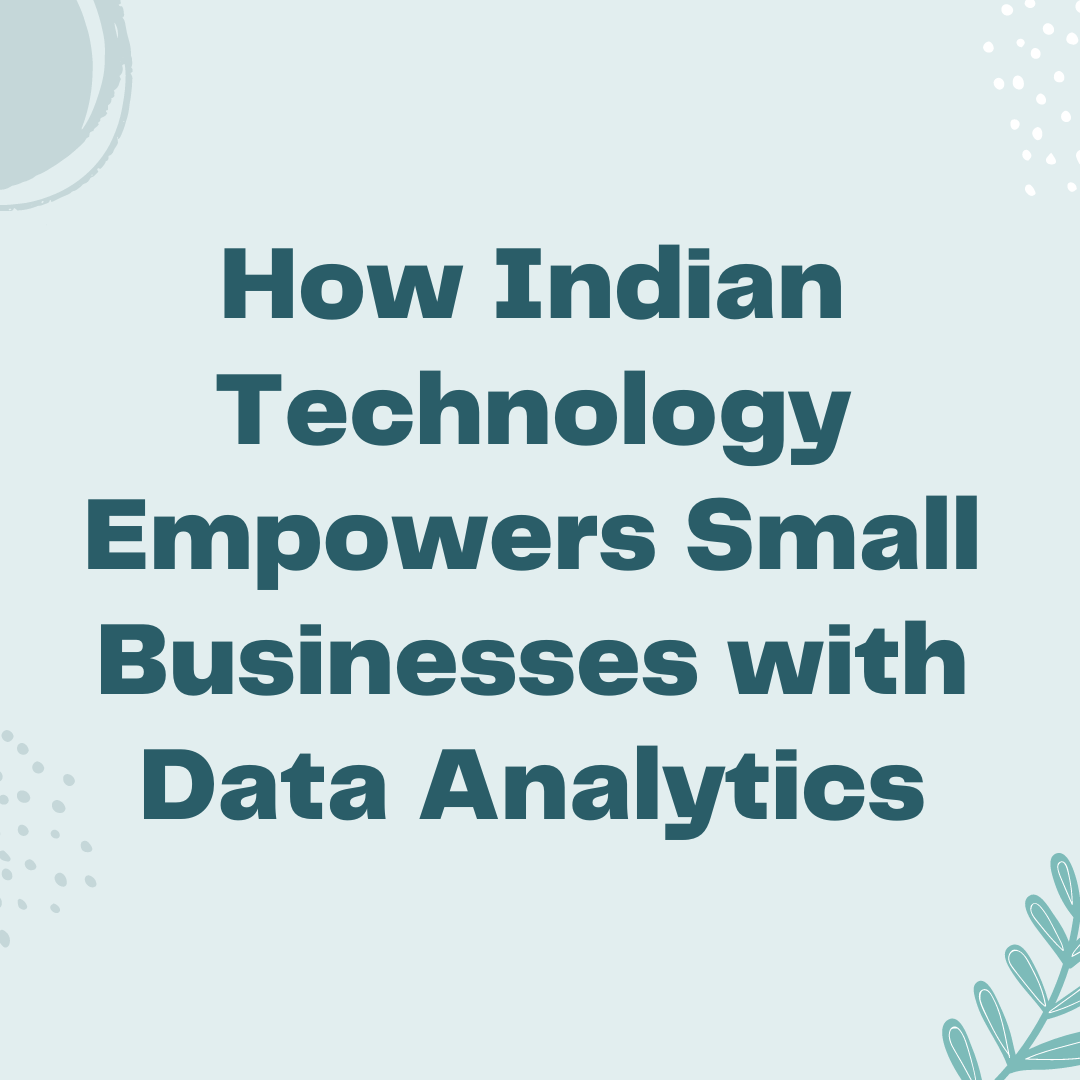Unlocking Growth: How Indian Technology Empowers Small Businesses with Data Analytics
Introduction
In the rapidly evolving business landscape, data has emerged as a critical asset. For small businesses in India, leveraging data analytics can be a game-changer, enabling them to unlock new growth opportunities and enhance their competitive edge. This article explores how Indian technology is empowering small businesses with data analytics, the benefits they derive, and the challenges they face in this transformative journey.
The Role of Data Analytics in Small Businesses
Data analytics involves the process of examining raw data to draw meaningful insights and make informed decisions. For small businesses, data analytics can provide a deeper understanding of customer behavior, market trends, and operational efficiencies, driving growth and innovation.
Key Ways Indian Technology is Empowering Small Businesses
- Accessible Analytics Platforms
- Affordable Solutions
Indian technology companies have developed cost-effective data analytics platforms tailored to the needs of small businesses. These platforms offer a range of functionalities, from basic data visualization to advanced predictive analytics, at a fraction of the cost of traditional enterprise solutions.
- User-Friendly Interfaces
Recognizing that small business owners may not have extensive technical expertise, Indian tech firms have focused on creating user-friendly interfaces. These platforms allow users to easily input data, generate reports, and visualize insights without requiring advanced technical skills.
- Cloud-Based Analytics
- Scalability and Flexibility
Cloud-based analytics solutions offer small businesses the flexibility to scale their data operations as they grow. Indian providers such as Zoho Analytics and Freshworks offer cloud-based tools that can be accessed from anywhere, making it easier for businesses to manage their data needs.
- Cost-Efficiency
By leveraging cloud infrastructure, small businesses can avoid the high upfront costs associated with traditional on-premise systems. Instead, they can opt for subscription-based models that align with their budget constraints.
- Integration with Existing Systems
- Seamless Integration
Indian tech companies understand the importance of integrating data analytics tools with existing business systems. Platforms are designed to seamlessly integrate with popular accounting software, customer relationship management (CRM) systems, and e-commerce platforms, ensuring a smooth flow of data.
- API Connectivity
Application Programming Interfaces (APIs) provided by these platforms allow small businesses to connect various data sources, facilitating a comprehensive view of their operations and enabling more accurate analysis.
Benefits of Data Analytics for Small Businesses
- Enhanced Decision-Making
Data analytics enables small business owners to make informed decisions based on actual data rather than intuition. This leads to more accurate forecasting, better inventory management, and optimized pricing strategies.
- Improved Customer Insights
By analyzing customer data, businesses can gain insights into purchasing patterns, preferences, and behaviors. This information can be used to personalize marketing efforts, improve customer service, and develop products that better meet customer needs.
- Operational Efficiency
Data analytics helps identify inefficiencies in business processes, allowing small businesses to streamline operations and reduce costs. For example, analyzing supply chain data can reveal bottlenecks and areas for improvement.
- Competitive Advantage
Small businesses that leverage data analytics can gain a competitive edge by being more agile and responsive to market changes. They can quickly adapt to new trends, identify emerging opportunities, and mitigate risks.
Challenges in Adopting Data Analytics
- Data Quality and Management
Ensuring the quality and accuracy of data is a significant challenge. Small businesses need to establish robust data management practices to clean, validate, and maintain their data.
- Skills Gap
While user-friendly platforms exist, there is still a need for basic data literacy among small business owners and employees. Training and education are essential to maximize the benefits of data analytics.
- Privacy and Security Concerns
With the increasing reliance on data, ensuring data privacy and security is paramount. Small businesses must implement adequate security measures to protect sensitive information from breaches and comply with regulations.



